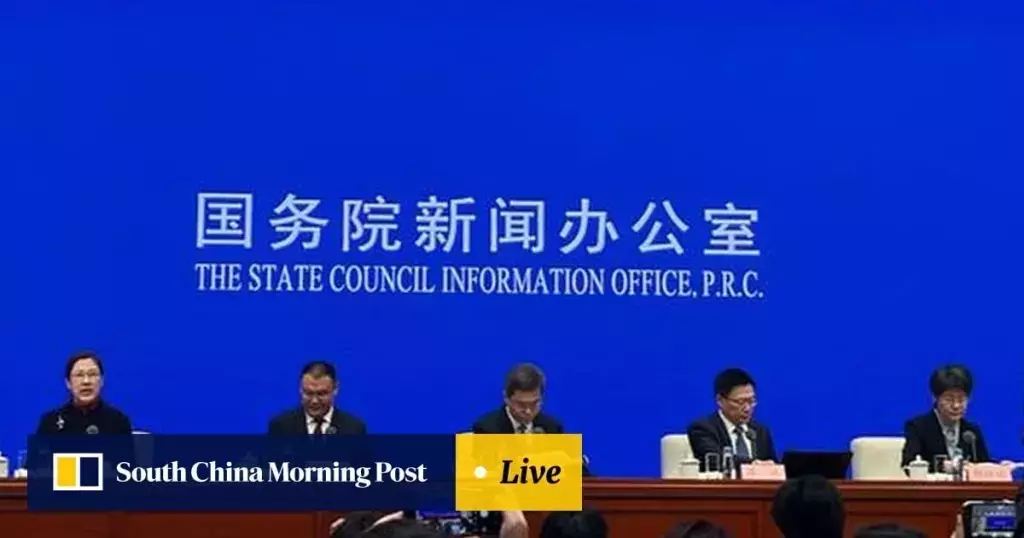China Unveils Sweeping Economic Stimulus Measures to Bolster Growth
The Chinese government has announced a comprehensive package of economic stimulus measures aimed at shoring up the country's slowing growth and addressing pressing financial risks. While the specific figure for the fiscal stimulus has not been disclosed, officials have emphasized the need to defuse local debt concerns and stabilize the volatile property market. The central government has indicated that it has the capacity for further action and higher budget deficits to support the economy.Unleashing a Powerful Economic Boost
Tackling Local Debt Risks
The Chinese government has recognized the pressing need to address the growing debt burden at the local level. Officials have emphasized the importance of defusing these risks to ensure the stability of the financial system. By taking a proactive approach to managing local debt, the government aims to create a more sustainable economic environment that can support long-term growth.One of the key strategies being employed is the implementation of stricter oversight and control measures over local government borrowing. This includes tightening regulations on the issuance of local government bonds and enhancing the monitoring of debt levels across different regions. The goal is to prevent the accumulation of excessive debt and mitigate the potential for financial instability.In addition to these regulatory measures, the government is also exploring ways to provide targeted support to local authorities struggling with debt. This could involve the provision of financial assistance, debt restructuring, or the facilitation of asset sales to alleviate the burden on local governments.Stabilizing the Property Market
The Chinese property market has been a significant driver of economic growth, but it has also been a source of concern due to the risk of bubbles and potential spillover effects. The government's efforts to stabilize the property market are aimed at ensuring a more balanced and sustainable real estate sector.One of the key initiatives is the introduction of measures to support homebuyers and developers. This includes cuts to mortgage rates, which are intended to stimulate demand and provide relief to both consumers and real estate companies. Additionally, the government is exploring ways to increase the supply of affordable housing and address the needs of first-time buyers.Furthermore, the government is taking steps to curb speculative activities in the property market. This could involve the implementation of stricter lending requirements, the introduction of property taxes, or the expansion of restrictions on the purchase of multiple properties. By reining in speculative behavior, the government hopes to create a more stable and healthy real estate market.Expanding Fiscal and Monetary Support
Alongside the measures targeting local debt and the property market, the Chinese government is also prepared to deploy additional fiscal and monetary tools to bolster economic growth.The central government has indicated that it has the capacity to implement further stimulus measures, including higher budget deficits. This could involve increased infrastructure spending, tax cuts, or other forms of fiscal support to businesses and households.The People's Bank of China, the country's central bank, has also taken steps to provide monetary stimulus. This includes cuts to mortgage rates and the release of additional funds from the central budget to support various economic initiatives.These coordinated efforts across fiscal and monetary policy are aimed at creating a more conducive environment for investment, consumption, and overall economic activity. By leveraging a range of policy tools, the government hopes to address the current economic challenges and set the stage for a stronger and more sustainable recovery.Fostering Innovation and Technological Advancement
Recognizing the importance of innovation and technological progress in driving long-term economic growth, the Chinese government is also focusing on measures to support these areas.One key initiative is the promotion of research and development (R&D) activities across various industries. This could involve increased funding for R&D projects, tax incentives for companies investing in innovation, and the creation of specialized innovation hubs and incubators.Additionally, the government is exploring ways to facilitate the adoption and commercialization of new technologies. This may include the development of supportive regulatory frameworks, the provision of financing and investment opportunities, and the enhancement of collaboration between the public and private sectors.By fostering a conducive environment for innovation and technological advancement, the Chinese government aims to unlock new sources of economic growth and enhance the country's global competitiveness in key industries.Strengthening International Cooperation
In an increasingly interconnected global economy, the Chinese government recognizes the importance of strengthening international cooperation to support its economic goals.One area of focus is the expansion of trade and investment ties with other countries. This could involve the negotiation of new trade agreements, the facilitation of cross-border investment flows, and the promotion of Chinese companies' participation in global value chains.Additionally, the government is exploring opportunities for collaboration in areas such as technology transfer, joint research and development, and the sharing of best practices. By leveraging international partnerships, China can access new sources of knowledge, expertise, and resources to drive its economic transformation.Furthermore, the government is committed to maintaining a stable and predictable policy environment that can attract foreign investment and foster a favorable business climate. This includes enhancing regulatory transparency, protecting intellectual property rights, and addressing concerns raised by international investors.By strengthening its international engagement and cooperation, China aims to position itself as a reliable and attractive destination for global economic activities, ultimately supporting its long-term growth and development.

